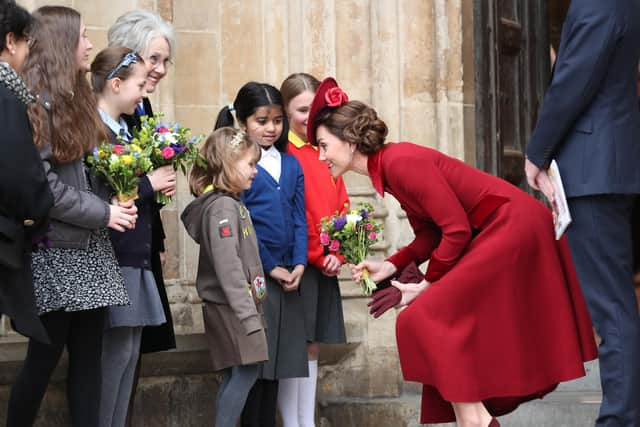Kate’s doctored Mother’s Day photo shows how the genie is out of the bag - Clair Challenor-Chadwick
In Orwell's novel the manipulation of information, particularly through altered photography and ‘newspeak’ served as a potent tool wielded to control narratives and rewrite the truth. Today, in our digital age, the manipulation of photography has taken on new dimensions, raising profound questions about truth, authenticity and the very nature of reality itself.
Let’s face it we all do it, editing a selfie with better lighting, clipping, airbrushing, touching up, removing, polishing. Is there a moral confusion to the recent outrage of the Royal’s Mother’s Day photo?
Advertisement
Hide AdAdvertisement
Hide AdThe advent of digital editing tools and the proliferation of social media platforms has created manipulated content, who knows what’s real anymore? Social media has unleashed a torrent of misinformation, propaganda, and manipulated imagery into our collective consciousness, who can forget seeing the Pope in a puffer jacket? The manipulation of information has fuelled toxic hate, distrust, polarisation and even war. Not to mention damaging our children’s mental health.


From airbrushed models in advertisements to digitally altered landscapes in travel brochures. Digitally altered photographs are everywhere.
The consequences of this manipulation are profound, eroding trust in the authenticity of visual evidence and undermining the credibility of journalism and media organisations striving to uphold ethical standards.
Propaganda and manipulation have always existed. But in an age of AI, it’s entering a new era of sophistication. Deep fake photos and films can not only touch up an image, but steal identities. This can be fun if it’s a deep fake Tom Cruise being interviewed on Tik Tok, but what if it’s someone in a position of trust and power – a GP, a politician – to scam people. There are now reports about cloning a loved one’s voice, known as the ‘grandparent scam’.
Advertisement
Hide AdAdvertisement
Hide AdWhat does it do to us psychologically, when trust becomes so questionable? On a more Orwellian scale, what does it mean for us politically and socially?
It doesn’t mean we’re headed for a dystopia, or we all have to become Luddites and smash the machine. It could mean we end up re-adjusting, and re-evaluating the importance of the human touch in a digital age.
Perhaps, human-generated content will gain a new premium and value, as we become awash with fake news and AI-generated noise. Just as paperback books came back into vogue.
Similarly, a good newspaper will have a host of humans – reporters, sub-editors, photographers, and photo editors – who all ensure what you see and read fits a transparent value system.
Advertisement
Hide AdAdvertisement
Hide AdThe genie is out of the bag, and if predictions are right, AI will revolutionise our society within two to five years. Whether we will be in an increasingly Orwellian world, or there will be regulation, and standards to uphold the integrity of communication, only time will tell.
Clair Challenor-Chadwick is the MD of Cause UK.
Comment Guidelines
National World encourages reader discussion on our stories. User feedback, insights and back-and-forth exchanges add a rich layer of context to reporting. Please review our Community Guidelines before commenting.